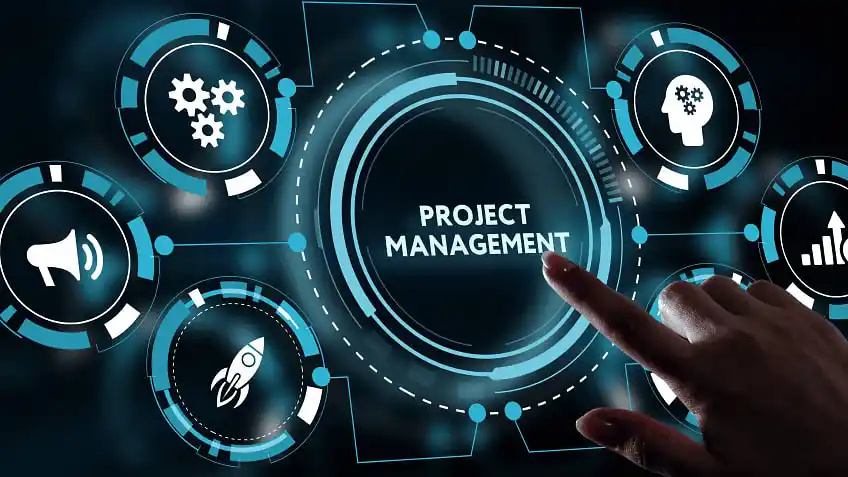6 Project Management Ideas Zeeshan and Karina Hayat Recommends

For startup founders juggling limited resources and ever-evolving challenges, traditional project management approaches might not always suffice. To navigate these complexities, exploring unconventional project management concepts can offer valuable tools. Here’s a deeper look into six lesser-known methods that Zeeshan and Karina Hayat leveraged to transform their startup projects.
Theory of Constraints (TOC)
The Theory of Constraints (TOC) in simple terms is a management philosophy focused on identifying and addressing the single most critical factor that limits an organization’s ability to achieve its goals. Think of it like finding and fixing the weakest link in a chain—once you strengthen that link, the entire chain performs better. Zeeshan and Karina Hayat applied TOC to their startup by identifying bottlenecks, optimizing their performance, and continually improving their processes.
Boeing applied for TOC to streamline its aircraft assembly process. Boeing’s complex aircraft manufacturing involves multiple interconnected processes, from component fabrication to final assembly. One significant constraint identified was the slow turnaround time in their final assembly lines, particularly in the assembly of critical components.
By improving workflows, adjusting component delivery schedules, and upgrading assembly infrastructure, Boeing was able to enhance efficiency and reduce production delays. This ongoing process of identifying and addressing constraints allowed them to continually improve their production system.
Cynefin Framework
The Cynefin Framework is a decision-making tool that categorizes problems into five distinct contexts: obvious, complicated, complex, chaotic, and disorder. This classification helps leaders understand the nature of their challenges and select the most appropriate management strategies. Zeeshan and Karina Hayat have found this framework particularly valuable for their startups.
For instance, obvious problems, where cause and effect are clear, can be managed with straightforward procedures. In contrast, complex issues with many unknowns might benefit from iterative approaches like Agile. By applying the Cynefin Framework, startup founders can better tailor their management techniques to the specific complexity of their challenges, leading to more effective and contextually appropriate problem-solving.
OKRs (Objectives and Key Results)
Objectives and Key Results (OKRs) is a goal-setting framework that helps organizations define clear, measurable goals and track their progress. This system consists of an objective— a clear, inspirational goal— and several key results—specific, quantifiable actions that drive achievement of the objective.
For startups, OKRs can be a game-changer in maintaining focus and alignment. In a rapidly changing environment, setting an objective such as “increase user engagement” with key results like “launch three new features by the end of the quarter” and “achieve a 30% increase in active users” provides a structured approach to goal-setting. This framework not only clarifies what success looks like but also ensures that everyone in the startup is aligned and working towards the same outcomes, driving collective effort and measurable results.
Holacracy
Holacracy is a decentralised management system that replaces traditional hierarchical structures with self-organizing teams. In a holacratic organization, decision-making authority is distributed across roles rather than being concentrated in a few top leaders. This approach fosters greater autonomy and responsiveness.
For startups, which often need to pivot quickly and adapt to new information, holacracy can enhance flexibility and innovation. For example, a startup implementing holacracy might empower its product development team to make decisions independently based on real-time user feedback, without waiting for top-down approvals. This autonomy can lead to faster decision-making, quicker implementation of new ideas, and a more agile organization.
Critical Chain Project Management (CCPM)
Critical Chain Project Management (CCPM) focuses on optimizing the use of resources to manage project tasks efficiently. Unlike traditional methods that emphasize task sequencing and scheduling, CCPM identifies the critical path of tasks essential to meeting project deadlines and allocates resources to these tasks while using buffers to handle uncertainties. For startups, where resource constraints are common, CCPM can help streamline project timelines and improve productivity.
For example, if a startup is developing a new application and faces delays due to key development tasks, CCPM would prioritize these critical tasks and allocate additional developers or resources to ensure timely completion. This focused approach helps startups meet deadlines and achieve project goals even with limited resources.
Conclusion
As businesses navigate evolving landscapes, leading innovation becomes crucial for staying relevant and achieving strategic objectives. By adopting these unconventional project management concepts, startup founders can refine their project management practices, optimize resource allocation, and adapt more adeptly to shifting conditions. These methods provide practical tools for overcoming typical challenges and addressing real-world problems with greater efficiency and effectiveness.
Which of Zeeshan and Karina Hayat’s recommended project management concepts resonates most with your startup’s needs?
